Reflections from the Global Collaboration to End FGM/C Conference 2024
Posted: November 22. 2024
by Irene Veronica Nagitta and Isatou Bittaye-Jobe
Female genital mutilation/cutting (FGM/C) is one of the gravest violations of women’s and girls’ rights. It is often performed on young girls, robbing them of bodily autonomy and causing lifelong physical and emotional harm. It embodies torture and inhumane, degrading treatment. The act of forcibly restraining girls, violating their most private parts, is a form of aggravated assault and gender-based violence. We must call it what it is and address it with the urgency it demands.
Volunteering at the Global Collaboration to End FGM/C Conference
As volunteers at The U.S. End FGM/C Network, we had the opportunity to support the Network at the recently held Global Collaboration to End FGM/C Conference in October 2024 in Washington, D.C. and are thrilled to share some reflections from our experience.
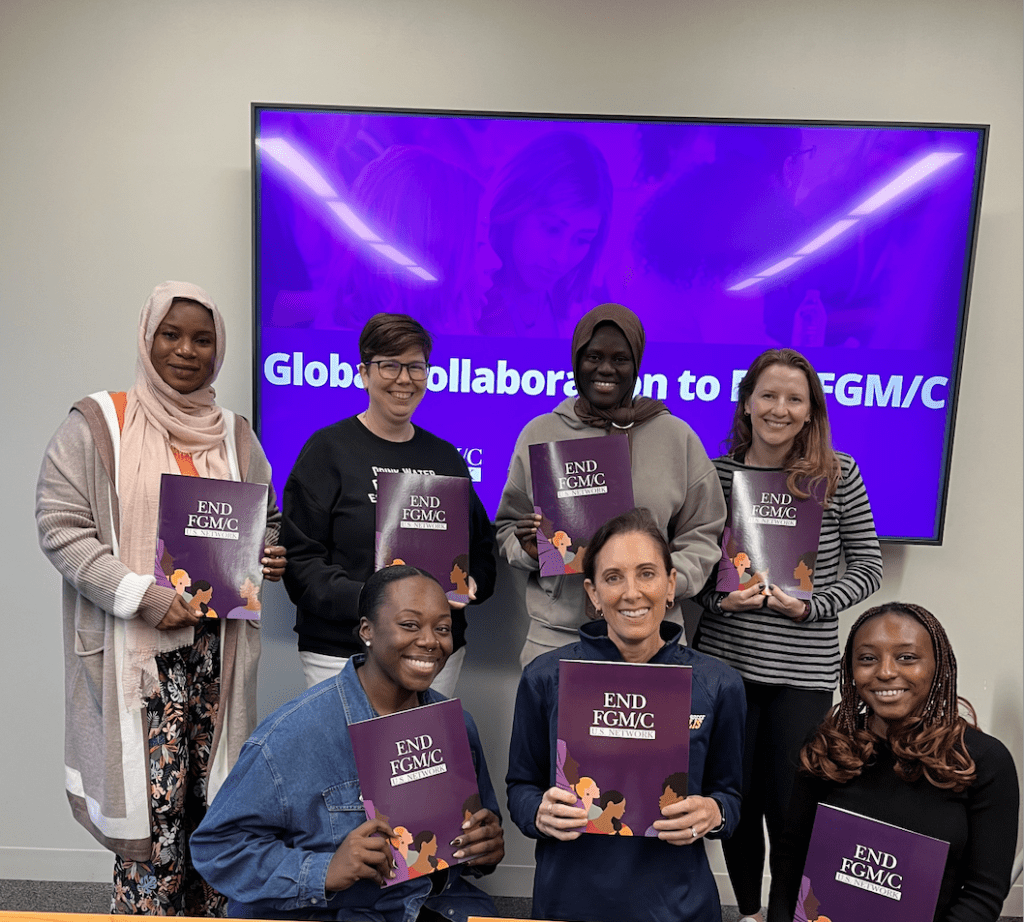
The Power of Survivors
Survivors are often not recognized enough for the role they play in the fight to ending FGM/C. At the event, we met some of the most courageous individuals, survivors of FGM/C, activists, and campaigners working to end FGM/C. Despite enduring unimaginable pain inflicted by those they trusted, these survivors refuse to be silenced. Instead, they transform their suffering into powerful advocacy, fighting for vulnerable girls and women while supporting fellow survivors
What struck us most was their strength and resilience. Despite the fear, shame, and social exclusion they often face, these survivors boldly share their stories and lead efforts to protect future generations. Their voices—amplified by community leaders who understand the cultural fabric of affected societies—are among the most powerful tools in this fight.
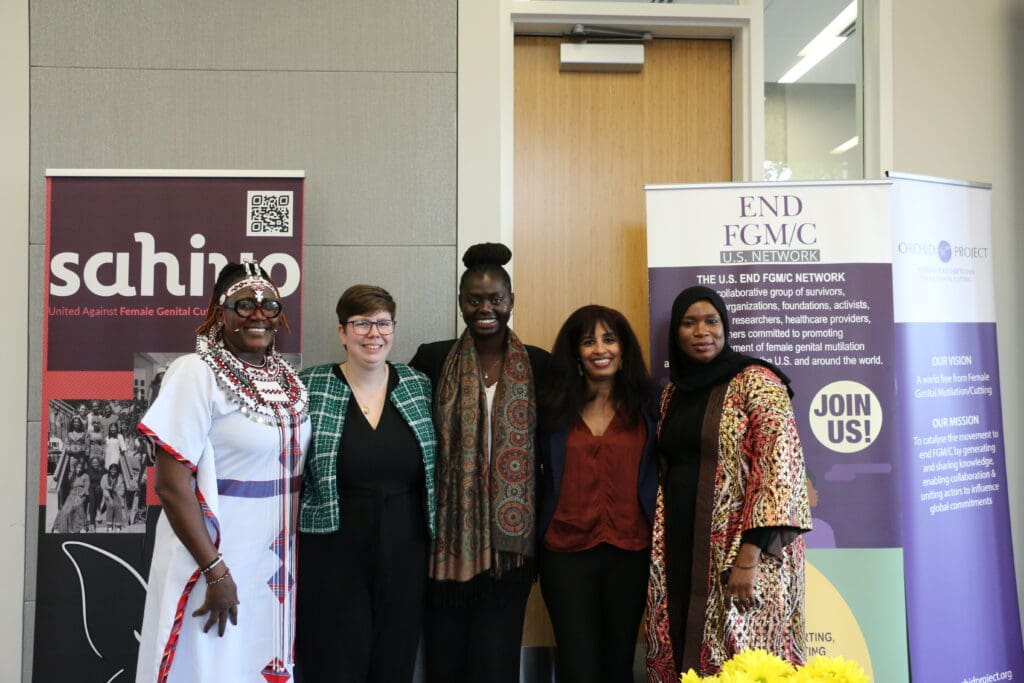
A Global Issue, Not a Localized Tradition
A common misconception that emanated from the sessions is that FGM/C is often treated as a localized cultural practice. However, it is a global issue, spanning continents and cultures. The conference brought together networks from Africa, Asia, the U.S., Canada, and the Latin American and Caribbean regions, underscoring its widespread nature.
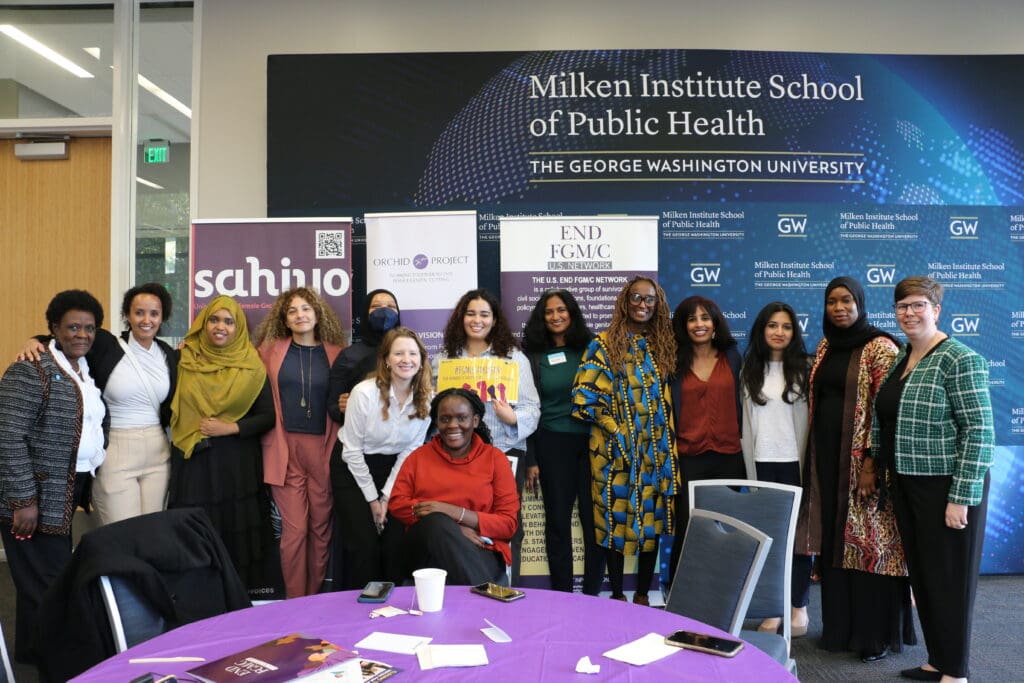
A Human Rights Violation
FGM/C must be recognized globally as a profound human rights violation. Language plays a crucial role in framing this issue. For instance, some refer to FGM/C as “circumcision,” likening it to practices for boys and claiming equality. But this is a false equivalence. FGM/C involves the mutilation of healthy organs without medical necessity. Calling it what it is—a severe human rights violation—is essential to acknowledging the trauma experienced by survivors and addressing the issue with honesty.
Many countries have signed international human rights laws, and political will exists to comply with these standards. However, for any campaign or law to succeed, community engagement is critical. Empowering local leaders to advocate within their communities builds trust, which is essential for meaningful progress.
FGM/C does not exist in isolation. It is deeply interconnected with other forms of gender-based violence (GBV). Addressing it requires a holistic approach, tackling not just the practice itself but the societal structures that perpetuate it.
Engaging Communities Thoughtfully
To create lasting change, we must approach communities with sensitivity, avoiding punitive measures that might drive the practice underground. Raising awareness about the harm caused by FGM/C requires fostering dialogue, encouraging debate, and empowering community members to lead initiatives to end the practice from within.
Only by educating those who perpetuate FGM/C—on the physical and psychological damage it causes—can we hope to see meaningful change. Survivors’ voices and community leaders’ determination are vital to dismantling this harmful tradition and protecting future generations.
The Role of Men
A Father’s love can be seen in many ways as they are always protective of their daughters, most often than not showing their quiet, selfless devotion makes one reflect: Wouldn’t such a father fiercely protect his daughters from harm if he truly understood the dangers of FGM/C?
However, the unsettling absence of men at the conference was noticed: hardly any men were present. This raised questions. Are men unaware of the harm caused by FGM/C? Or do they view it as an unchangeable cultural rite necessary for their daughters’ societal acceptance?
The truth is, that men can be powerful allies in the fight to end FGM/C. They need to understand that protecting their daughters extends beyond providing for them; it means challenging harmful traditions to safeguard their futures. Engaging and educating men is a crucial step in dismantling this practice.
A Collaborative Solution
Ending FGM/C requires a global, community-centered response. As several speakers emphasized, the answer lies in collaboration—between civil society organizations, government agencies, survivors, and community leaders. Together, we can create sustainable change. Let us stand with the brave advocates leading this fight and support them in their mission to end FGM/C once and for all.
Bridging the Funding Gap to End FGM/C
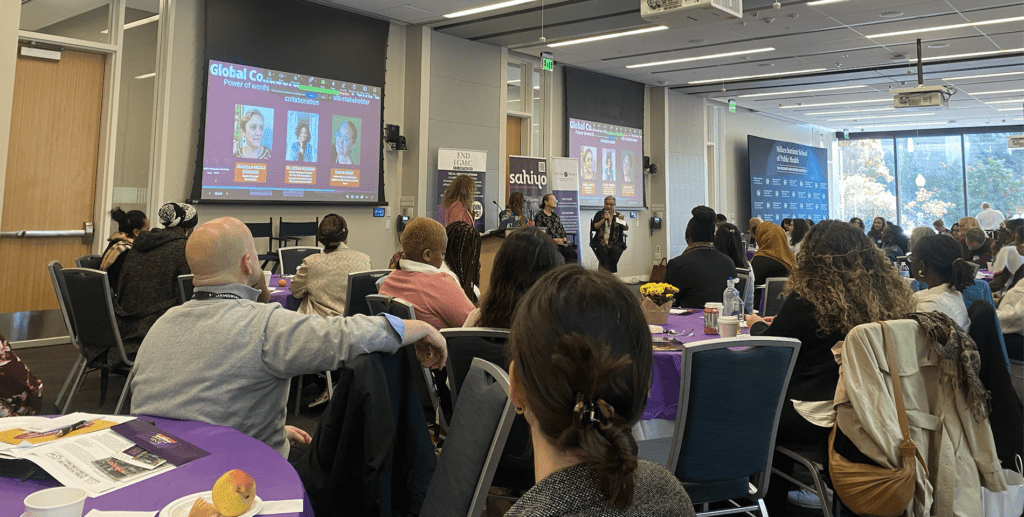
With limited funding allocated to women- and girls-led organizations, critical issues—such as female genital mutilation/cutting (FGM/C)—remain severely under-resourced.
This funding disparity disproportionately impacts grassroots and survivor-led organizations, which are uniquely equipped to drive change within their communities.
Participants at the conference highlighted several barriers that limit funding access for grassroots and survivor-led organizations ending FGM/C:
- Complex Application and Reporting Requirements
Funders often impose intricate application processes and labor-intensive reporting obligations. For small organizations with limited staff and capacity, these demands can pose insurmountable barriers to securing essential funding.
- Lack of Flexible Funding
Many grants are overly restricted, covering only specific projects while neglecting administrative costs critical to sustaining operations. This limitation forces organizations to function on a precarious, project-by-project basis, impeding their long-term impact.
- Competition from Intermediary Funds
International NGOs (INGOs) frequently serve as intermediaries in developing countries, ostensibly to channel funding to local organizations. However, many INGOs compete directly with grassroots groups by taking on project implementation roles, reducing direct funding opportunities. This gatekeeping undermines the capacity of grassroots organizations to lead community-driven change.
The Call for Equitable Funding
To address these barriers and inequity, increasing funding and ensuring more accessible, flexible grants are essential. These would enable grassroots and survivor-led organizations to access resources for advocacy and community engagement to end FGM/C and ensure the protection of girls and women.
The conference participants developed key recommendations that were presented by the global platform to address critical funding challenges and strengthen support for ending FGM/C worldwide.
- Flexible, Multi-Year Grants: Providing adaptable funding that covers both programmatic and operational needs.
- Capacity-Building Investments: Strengthening grassroots organizations’ infrastructure to ensure sustainability.
- Direct Funding Models: Streamlining access to resources for grassroots and survivor-led groups by minimizing intermediary involvement.
The U.S. End FGM/C Network will be writing up a more formal report from the conference, including the full list of recommendations that were developed at the conference to be shared with attendees and publicly. However, what we do know is that investing in grassroots and survivor-led organizations empowers communities to create sustainable, locally driven solutions that can transform lives and protect future generations. Supporting these organizations is not only a matter of fairness but a pathway to ending FGM/C.
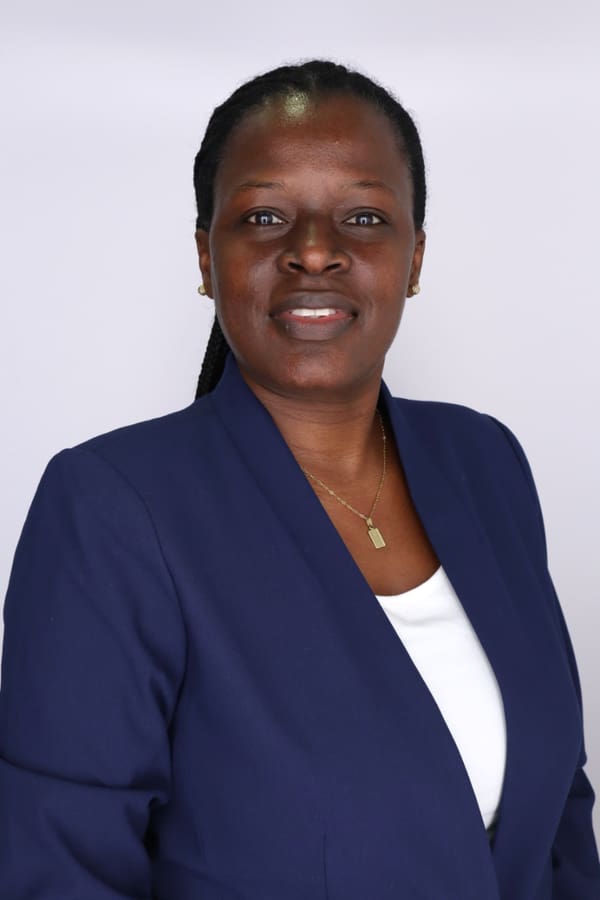
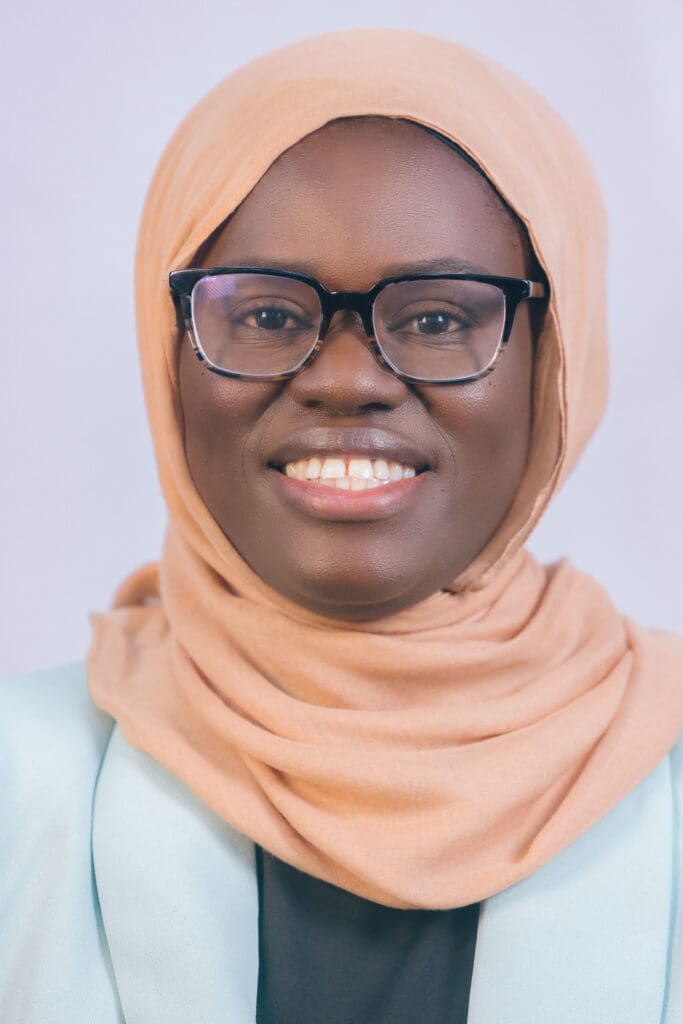
Irene Veronica Nagitta is a Ugandan and US-trained lawyer with 15+ years of experience in diverse areas of law and a deep passion for Justice for women. Irene has worked in international organizations including the United Nations Office of the High Commissioner for Human Rights in Geneva, government Organizations, and the private sector, and operated a law firm.
Isatou Bittaye-Jobe is a Grant Writer and strategist dedicated to supporting nonprofits focused on gender justice, women’s rights, human rights, and social change advocacy. As the Founder and Principal Consultant of AmiKha Consulting, she assists U.S.-based and Global South nonprofits with grant research, funding strategy development, grant writing, and grant readiness services.
Both Isatou and Irene are volunteers with The U.S. End FGM/C Network.
